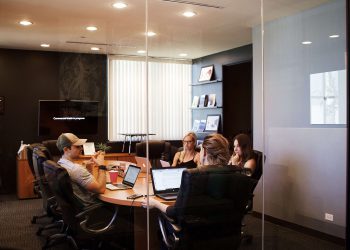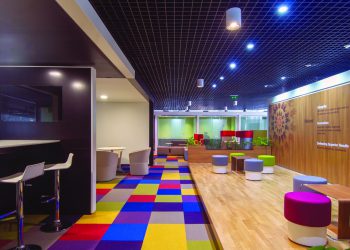[elementor-template id=”3753″]
This is dummy title and will be replaced with real title of your post
Image with size : 1140×570
Image: unsplash.com
Companies have been compelled to move to remote working and maintaining a company culture has faced difficulties as a result of the pandemic. This change has its own set of challenges and complexities, the most visible of which is the lack of workplace socialization and togetherness.
When individuals are sitting far away and communication is limited to work solely, it’s tough to develop a business ethic and culture.
So, how can businesses expect to create a company culture in a non-traditional work environment? How are businesses reinventing shared experiences, sharing and exchanging ideas outside of the workplace, and establishing an overall engagement based on what it means to work for a specific company?
A possible solution is a hybrid work, which divides workdays between home and office locations.
Allowing employees to develop customized business culture activities that empower them and promote a more inclusive culture requires a concerted effort.
According to a 2020 Blind poll, half of the respondents said that working from home had harmed their careers and that remote work had diminished internal and external networking chances.
If a workplace is entirely remote, there are no conversations taking place in the office that would exclude people working remotely.
In a fully remote model, efforts might be taken to physically bring the team together to foster team culture. It can be used to commemorate key company accomplishments or as an occasion to engage in activities outside of the workplace.
In a remote or hybrid structure, technology can also help to support company culture.
The recent Great Resignation in the United States, which saw a large number of employees resign in large numbers, has once again raised concerns about the gap between people and their workplace.
The constant contact through a computer screen make people feel worried and overwhelmed. Physical encounters, body language cues, and general screen fatigue have all taken their toll.
Employees report a lack of shared experiences, a sense of being alone when performing activities, and a sense of being disconnected from the firm.
If companies want to keep strong people, they must focus on the “changing” demands of workers, as well as the significance of listening to better understand these needs.
Although this new work experience is shared, each person’s situation is different. Allowing employees to develop customized business culture activities that empower them and promote a more inclusive culture requires a concerted effort.
Source: The HR digest
Related Posts
edit post

HR
How to create strong company culture amid remote workers in 2022
edit post

Updates
Boris Johnson reveals post-Brexit plan to turbo-charge ‘free’ Britain in 2022
edit post

Updates
Omicron: Europe and the U.S. consider isolation as cases increase
edit post

Immigration
Nigerian visitors can apply for UK visas again
edit post

HR
Employee mental health benefits, a must-have resource
edit post

HR